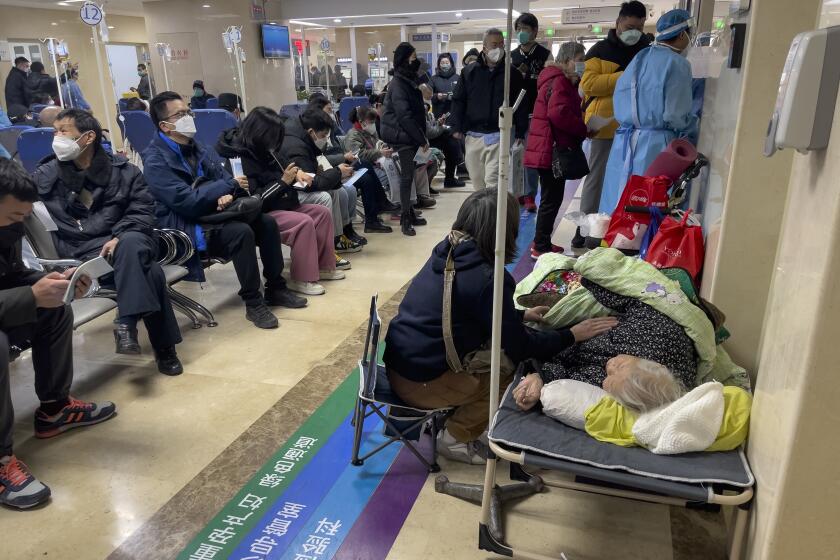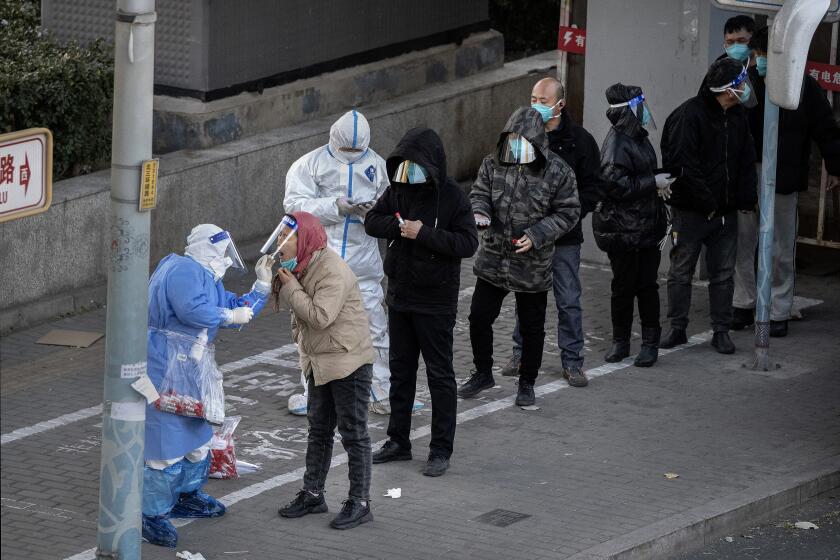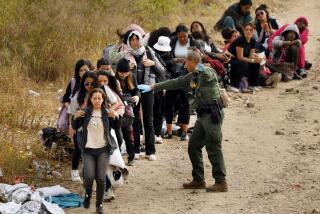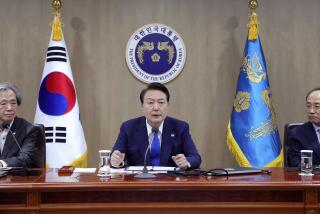U.S. to relax COVID testing rules for travelers from China as early as Friday
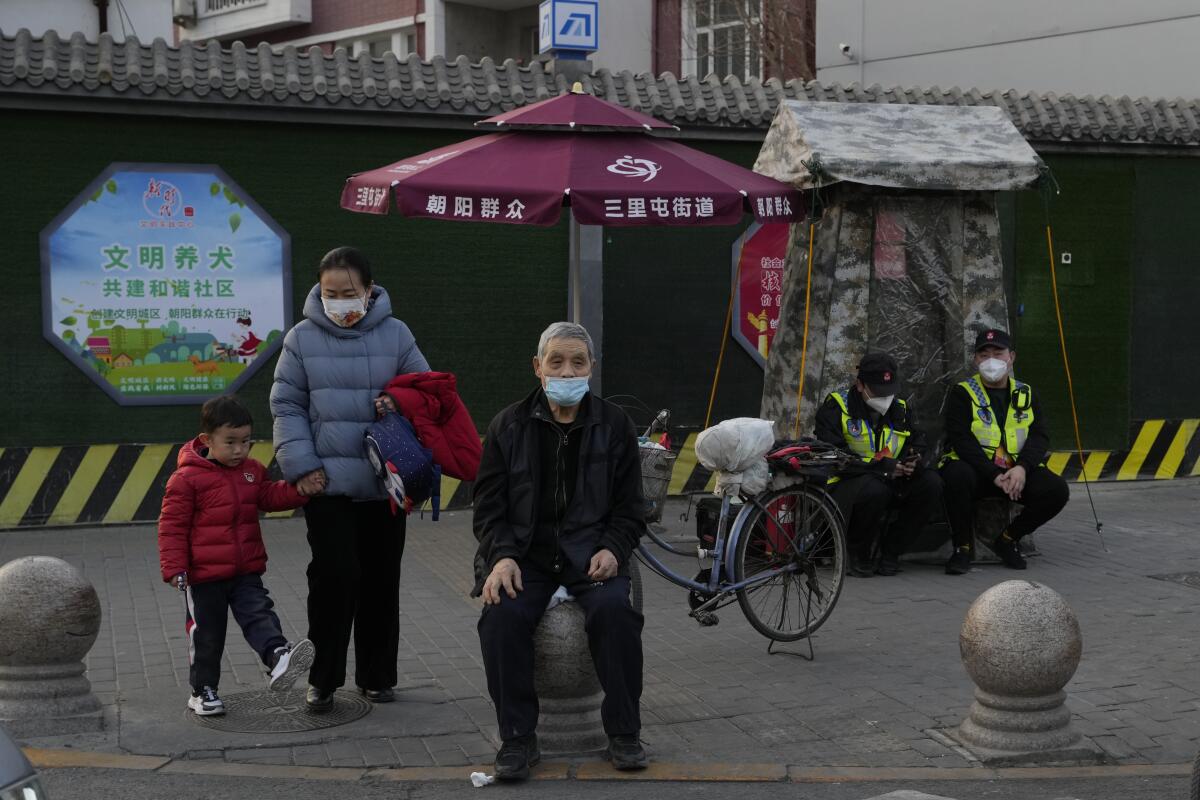
- Share via
WASHINGTON — The Biden administration is preparing to relax COVID-19 testing restrictions for travelers from China as soon as Friday, according to two people familiar with the decision.
The people, who were not authorized to comment publicly and spoke on the condition of anonymity, said the administration has decided to roll back the testing requirements as cases, hospitalizations and deaths are declining in China and the U.S. has gathered better information about the surge in infections there.
The restrictions were put in place Dec. 28 and took effect Jan. 5 amid the surge in China after the government sharply eased pandemic restrictions and as U.S. health officials expressed concerns that their Chinese counterparts were not being truthful to the world about the true number of infections and deaths. The Washington Post was the first to report Tuesday about the expected Biden administration’s relaxation of the testing rules.
When the restrictions were imposed, U.S. officials said they were necessary to protect U.S. citizens and communities because there was a lack of transparency from the Chinese government about the size of the surge or the variants that were circulating within China.
As part of its response, the Centers for Disease Control and Prevention earlier this year expanded genomic surveillance at several U.S. airports, collecting voluntary samples from passengers aboard hundreds of weekly flights from China and testing wastewater aboard airplanes. The Traveler-based Genomic Surveillance Program will continue to monitor travelers from China and more than 30 other countries.
The rules imposed in January require travelers to the U.S. from China, Hong Kong and Macao to take a COVID-19 test no more than two days before travel and provide a negative test before boarding their flight. The testing applies to anyone age 2 and older, including U.S. citizens.
Patients, most of them elderly, lie on stretchers in hospital hallways or take oxygen while sitting in wheelchairs as COVID-19 cases surge in Beijing.
It also applied to people traveling from China via a third country and to people connecting through the U.S. en route to other destinations. Anyone testing positive more than 10 days before the flight can provide documentation showing they’ve recovered from COVID-19 instead of a negative test result.
It has been left to the airlines to confirm negative tests and documentation of recovery before passengers board.
China saw infections and deaths surge after it eased its “zero-COVID” strategy in early December following rare public protests against a policy that confined millions of people to their homes. Some protesters demanded that President Xi Jinping resign.
But as China eased its strict rules, infections and deaths surged, and parts of the country for weeks saw their hospitals overwhelmed by infected patients looking for help. Still, the Chinese government has been slow to release data on the number of deaths and infections.
Protesters in China are eager to see an easing of “zero-COVID” rules, but health experts warn that doing so could prompt a massive health emergency.
Washington’s decision to lift restrictions comes at a moment when U.S.-China relations are strained. Biden ordered a Chinese spy balloon shot down last month after it traversed the continental U.S. The Biden administration has also publicized intelligence findings that Beijing might be considering providing weaponry to Russia for its war on Ukraine.
Earlier Tuesday, Chinese Foreign Minister Qin Gang warned that Beijing and Washington were headed for “conflict and confrontation” if the U.S. didn’t change course.
Qin’s comments came a day after Xi, in an unusually pointed speech, said that “Western countries led by the United States have implemented all-round containment, encirclement and suppression of China.”
White House officials sought to downplay the heated rhetoric from Beijing.
“There is no change to the United States’ posture when it comes to this bilateral relationship,” White House National Security Council spokesman John Kirby said. “The president believes those tensions obviously have to be recognized but can be worked through.”
More to Read
Sign up for Essential California
The most important California stories and recommendations in your inbox every morning.
You may occasionally receive promotional content from the Los Angeles Times.
